The health app that hopes to empower women
- Published
"Our reproductive health is an incredibly foundational and central part of our lives," says Danish entrepreneur Ida Tin
The contraceptive pill revolutionised sexual and social behaviour in the 1960s.
Today's revolution for women is knowing exactly when to expect your period, according to Ida Tin, co-founder and chief executive of the reproductive health tracking app Clue.
Although Clue is not recommended as a contraceptive, the app tracks a woman's cycle, and can predict, not only fertility and menstruation, but also related symptoms such as mood swings or PMS (premenstrual syndrome).
As is the case with many good business ideas, Ms Tin's inspiration came from personal experience.
"Our reproductive health is an incredibly foundational and central part of our lives," she says.
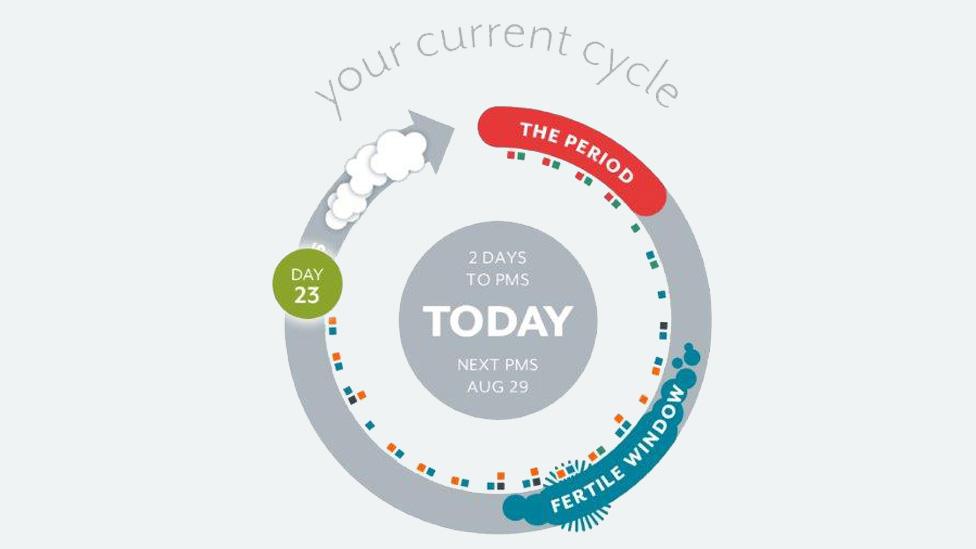
The app aims to be simple to use
"I was around 30 and I wasn't on the pill, because it didn't work that well for me. I was wondering why nobody had built a really good tool to manage this part of life."
She adds: "Clue is all about empowering women. It allows women to make better individual health decisions, and to improve their overall well-being."
Ms Tin, 36, knows from experience how empowering it can be, for a woman, to take things into her own hands.
Before she founded Clue in Berlin in 2012, she spent five years running a business in her native Denmark which organised motorcycle tours around the world.
Ms Tin also wrote a best-selling book about her motorcycling exploits in far flung parts of the planet.
Financial backing
Ms Tin runs Clue with her co-founder and partner Hans from an open plan loft office in the German capital.
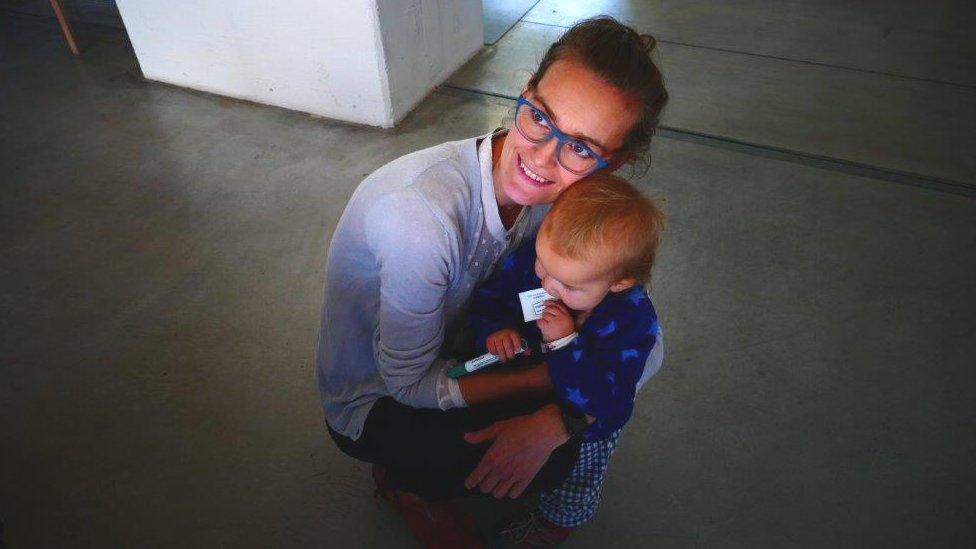
Ms Tin takes her daughter to work with her
Although the business is only three years old, more than two million women in over 180 countries now use Clue, which Ms Tin says is the world's fastest-growing menstrual cycle tracking app.
She says: "We don't have a typical app user. It is a group as diverse as women are on this planet.
"A lot of girls and women are using Clue because they want to know themselves and their bodies better.
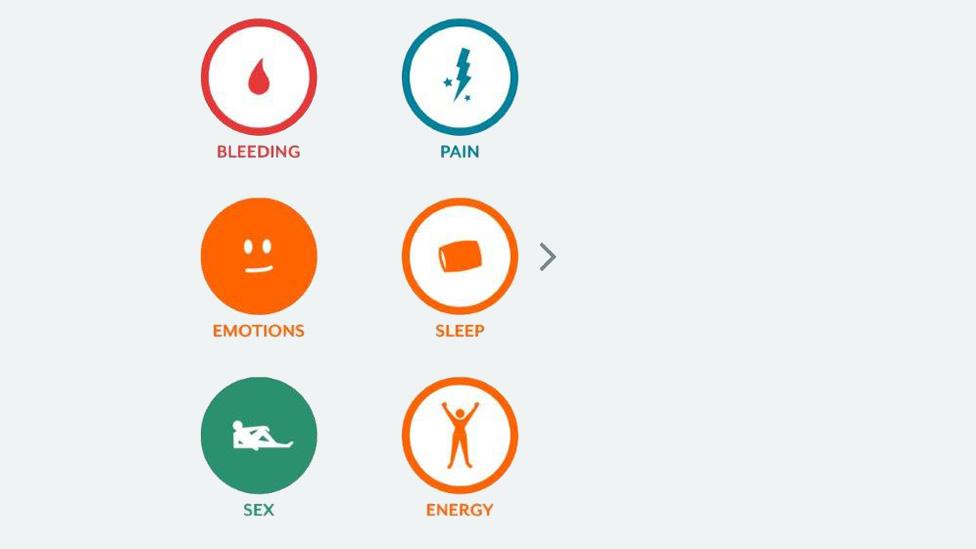
The app is used by women in more than 180 countries
"Some women are using Clue because they're trying to get pregnant, others to get reminders to take their birth control pills, or to share their data with a doctor."
The app is free - and hasn't made the company any money yet.
However, Ms Tin hopes that it will start to generate revenue within the next few years, and is continuing to explore the best ways of doing so.
She appears to have the confidence of her investors, as Clue recently raised $7m (£4.6m) of funding from venture capital firms Union Square Ventures, which is based in New York; and London's Mosaic Ventures. This brings the total Clue has secured to $10m.
The cash is being used to expand Clue's team of 22 full-time staff, develop new features for the app and increase the number of users.
'Company's responsibility'
Clue is the latest addition to an increasingly crowded market place. So the search is on for ways of distinguishing itself from the competition.
Right from the start Ida was determined that the app should not be "pink" or "girly".
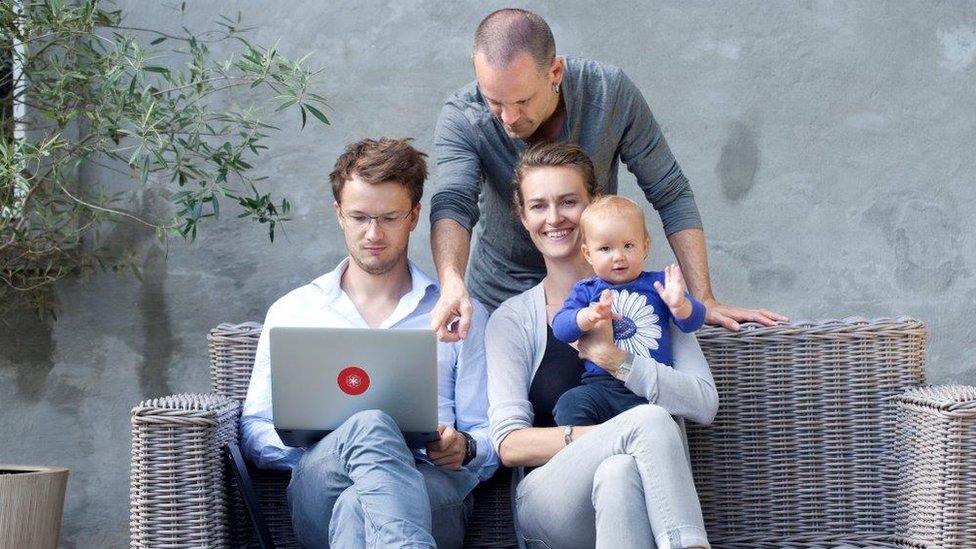
Ms Tin recently secured a new round of investment for the business
So the design is gender neutral - and the company is at great pains to stress the scientific nature of the way the app works.
Users have to regularly enter information into a calendar. Topics range from menstruation to motivation, and from sex drive to appetite.
According to the company, the more information you put into the app the more accurate it is. And the firm works closely with doctors and reproductive health scientists to ensure that accuracy.
When it comes to the daily running of the business, Ms Tin encourages staff to work flexibly, so as to balance their work and family lives.
"Reaching the right balance between family and work is not only a personal responsibility and choice for both women and men." she says. "It's also a company's responsibility."
The needs of Ms Tin's two children are built into her busy daily schedule. She drops her five-year-old son Elliot at kindergarten each morning, before bringing her one-year-old daughter Eleanor to the office.
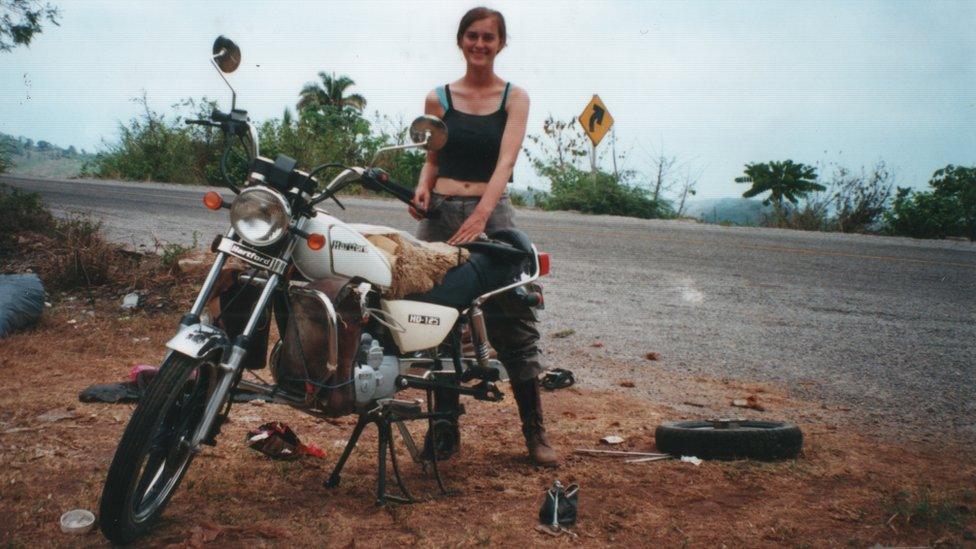
Ms Tin used to motorcycle around the world
Ida happily describes the toddler as an "office baby".
"It's not always easy to balance a family and a company" she says, "but I'm a very stubborn person and I am just not willing to have to choose between the two.
"It has to be possible to have a family and work on something I deeply care about."
On the day that the latest tranche of money from investors hits the company's account, there's a quiet celebration in the office.
Ms Tin is clearly excited about what the money means for the future of her young company.
"I want to build a platform for women's health data," she says, "so women can get deep insights about their body."
She raises a glass of champagne in thanks to her staff, her daughter Eleanor cradled in one arm.
There's a real symbolism to the moment - a woman with big hopes for the future, balancing her twin loves - her family and her business.